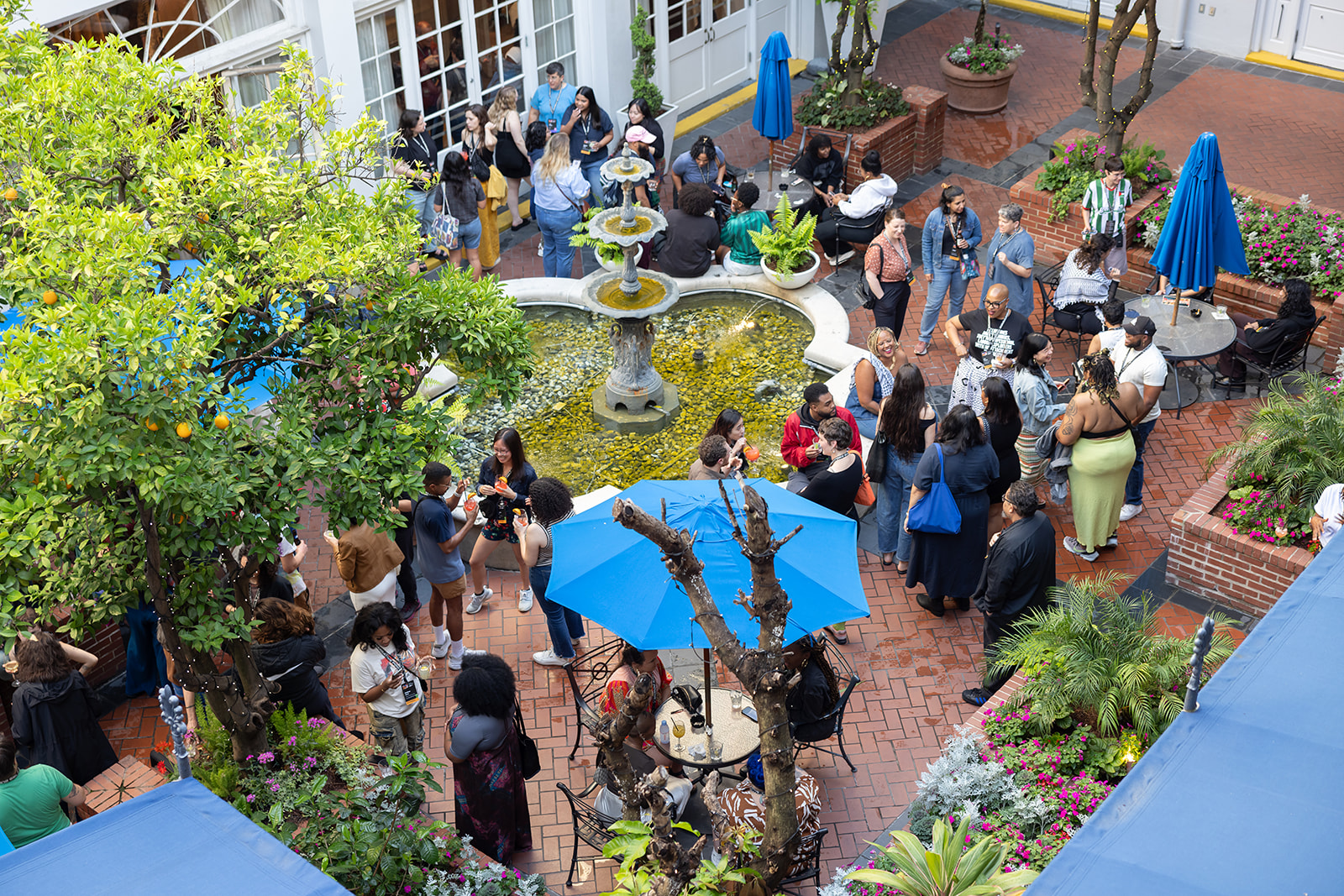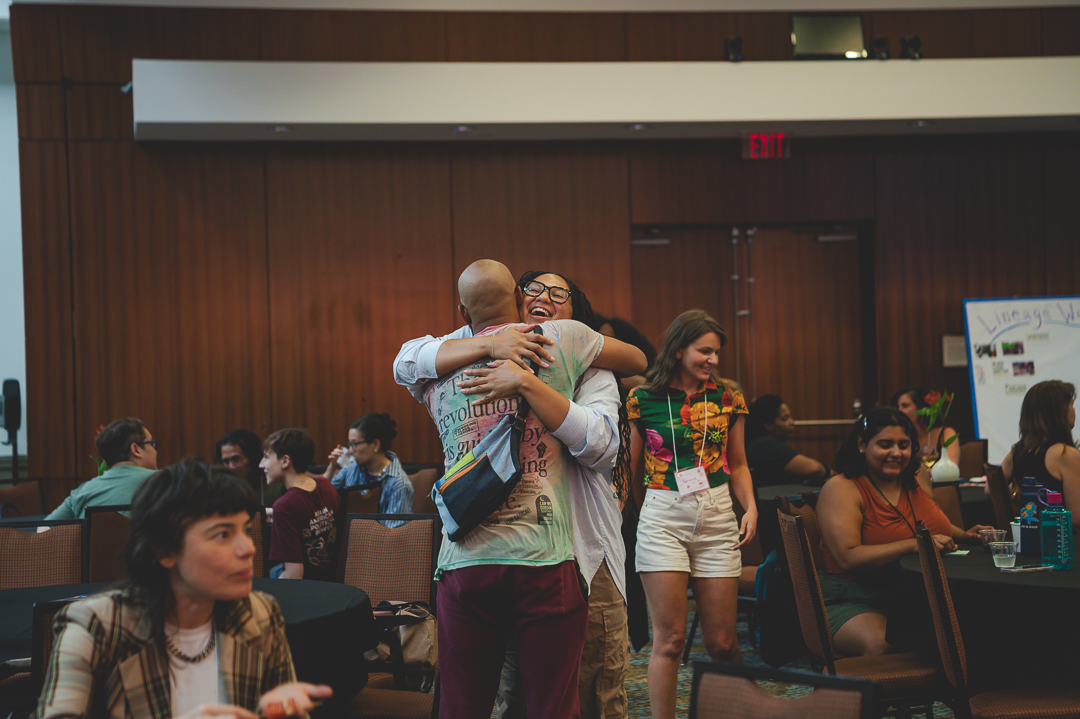Immigrant rights organizations like Juntos, a Latinx grassroots group in Philadelphia, have been mobilizing powerfully in the months since Donald Trump took office. For Miguel Andrade, the communications manager at Juntos and a 2017 ReFrame mentee, strategic communications has played a critical role in their organizing work. “Right after the election, we knew the community needed to hear from us, so we put out the message that we’re not going to go back into the shadows, and we’re going to keep fighting,” Andrade said.
This year, Juntos began a campaign to establish community solidarity and safety, modeled after similar work in Arizona and Georgia. “We’re calling them ‘community resistance zones,’” Andrade said, noting that in Philadelphia (as in other cities), ICE has been ramping up their use of tactics such as targeting people’s homes and going to courts and detaining people at probation or immigration hearings. He added that the campaign is focused not only on immigrant detention, but the broader criminal justice system as well. “Philadelphia is a so-called ‘sanctuary city,’ but we still have stop-and-frisk happening, we still have cash bail. We need to highlight the fact that it’s two branches of the same corrupt tree that uses the same rhetoric,” Andrade said. “The immigrant detention system doesn’t work without the criminalization of Black and brown bodies. We can’t call ourselves a sanctuary city until all of us are protected.”
It’s especially important for the immigrant rights movement to think about what narratives are being pushed, Andrade said. He pointed to the story often told about Dreamers, undocumented young people who have lived in the United States for much of their lives, as an example of a narrative that ultimately does more harm than good.
“This narrative that young people are the ones that deserve to be here because they are ‘good students’ is hard to swallow, because many in our communities don’t have that opportunity,” he said. “Focusing mainly on young people and using language like ‘they came here through no choice of their own’ is implicitly putting the blame on our parents, making them and other members in our community that much more deportable.”
He added: “It’s not only the Republicans or Democrats putting that out there. We often end up using this narrative within the community.”
It also alienated him on a personal level. Born in 1991 in Colombia, Andrade moved to the U.S. with his family when he was five years old. After his visa expired soon after, he and his family became undocumented (Andrade received his green card when he was in his early twenties). “I was never one of those students. I was never the valedictorian — I was the kid that was always struggling, goofing off in class and cutting class,” Andrade said. “The ‘Dreamer’ narrative didn’t represent me, and it did a lot of damage for me personally. When I learned what being undocumented really meant in high school — that there were things I couldn’t do because of my status — I fell into a deep depression. I ended up dropping out of school and giving up.”
He added: “It was doing communications and organizing that brought back the hope I had lost.”
Many immigrant rights advocates who grew up in the height of the Dreamer movement have now embraced a new narrative. “I think there’s a lot of people who came out of that movement that are able to see how damaging that rhetoric was. And I’ve seen a lot of people shift away from that narrative and be a lot more inclusive,” Andrade said. “We’re now pushing this narrative at the national level that it’s not about who deserves to be here, it’s about all of us.”
After Trump’s announcement to end the Deferred Action for Childhood Arrivals (DACA) program, Andrade said that strategic communications was vital for Juntos. “We needed to make sure that as an organization, we had messaging that addressed what was happening to our community and at the same time inspired people to continue to fight and organize,” he said. Juntos prepared a media statement and the day of the announcement, organized a rally in defense of DACA. “When Jeff Sessions announced the end of DACA, our community was already out in the streets marching, and our statement of resistance went live soon after,” Andrade said. “It was an incredibly powerful moment for our community.”
For Andrade, the ReFrame Mentorship has reinforced his belief in the importance of communications strategy for organizers and movements.
“Communications needs to be central and not put to the side in social justice movement work. People see it as a commodity or an expensive thing that you need to hire an expensive consultant for,” he said. “But it’s so vital to have somebody or have a group of people thinking about our messaging. Especially during these times, it’s really important to have the right messaging and the right story and have the right people telling those stories.”







































.jpeg)


.png)

%20(1).png)




























